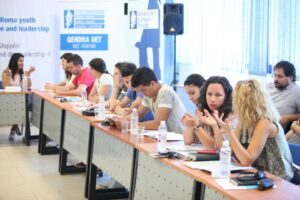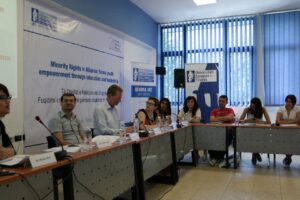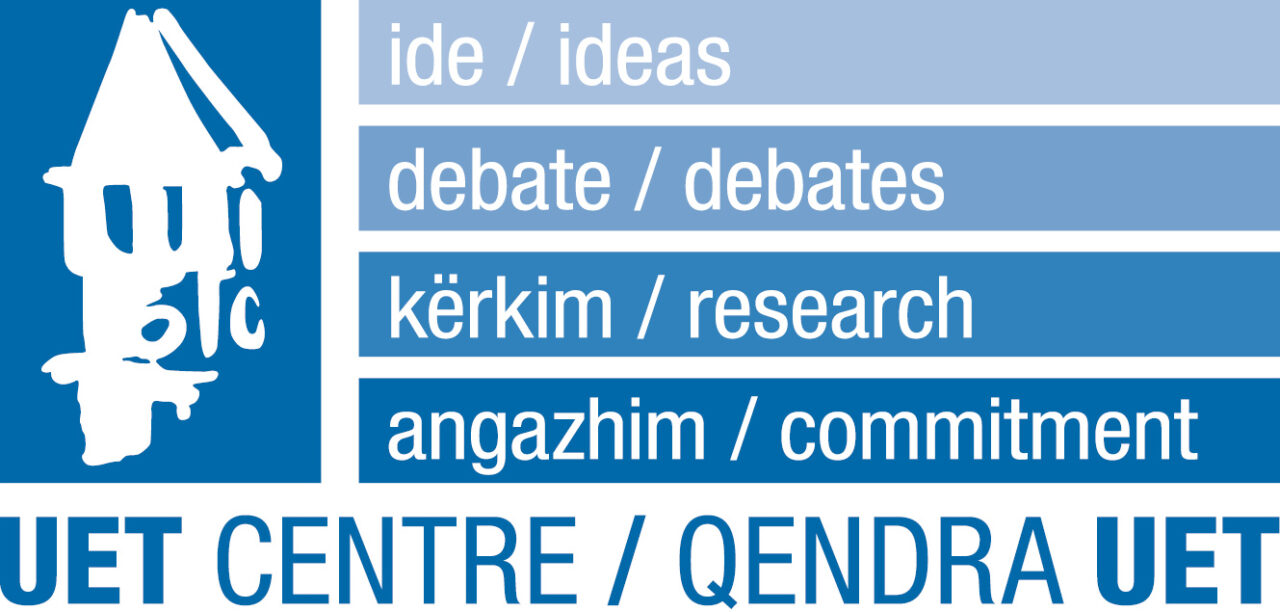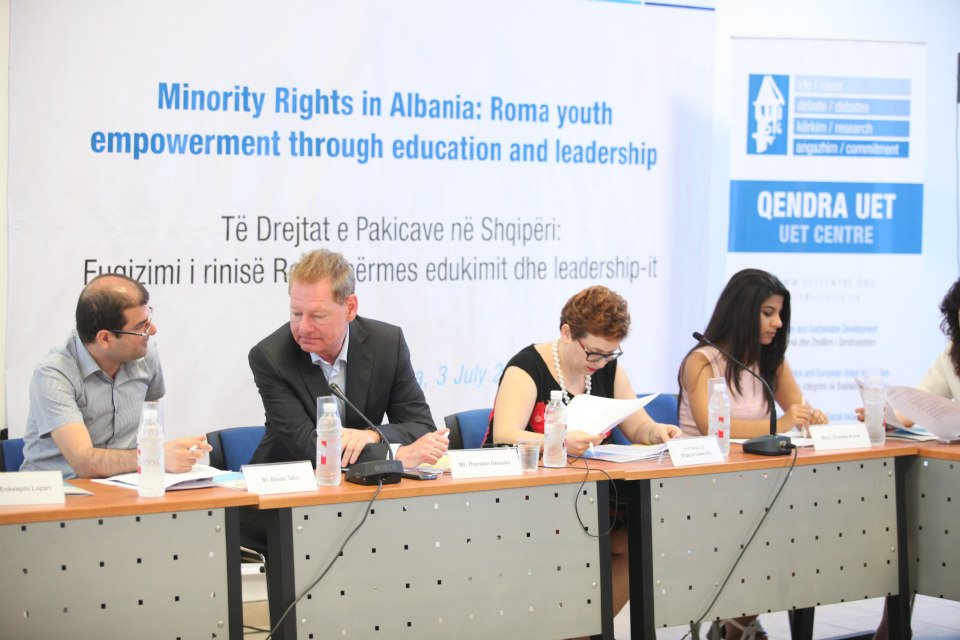What about this Project
This project is in line with the UET Centre and Institute of Romani Culture in Albania
(IRCA) cooperation in the field of social inclusion of Roma communities and is supported by “Konrad Adenauer Stiftung, Rule of Law Program South East
Europe” and implemented by the UET Centre for the period February – November 2016.
This policy paper is presented in the framework of the project “Working together and Joint Forces for Roma youth social inclusion through tailored policies and good practices on minority rights” financed by “Konrad Adenauer Stiftung, Rule of Law Program South East Europe” and implemented by the UET Centre for the period February – November 2016. The project aims to mainstream minority rights at the work of policy makers at the local level through the direct engagement of the Roma communities as Roma Focal Point. Project strives to increase the participation of the Roma communities in the local development agenda and to have strategic community development plans implemented in the municipalities of Tirana, Durres, and Fieri. While the government have succeeded in developing and adopting national strategies for improving the situation of Roma, there are substantive shortcomings with regard to their effective implementation, in particular at the local level. As the Roma participation in decision-making is in relatively low levels, this affects their inclusion in all spheres of life. The project established Roma Focal Points network and developed some practical guides to prevent discrimination against the Roma communities as part of the decision making process at the local level. Roma Focal Points are mobilized into Municipalities to prioritize local needs and implement development initiatives (e.g. self-help activities related to education, health, protection from discrimination, and promotion of human rights) in close partnership with local authorities. The impact of the project is to increase the capacity of Roma and Egyptians to participate in local development and planning of local level institutions to address social inclusion. The recommendations provided by this policy paper draw from the analysis of the current situation on the social inclusion of Roma communities, their engagement with and participation in local governance as well as the insights and findings from the Roma Focal Points at the Municipality of Fieri, Durres and Tirana. Main recommendations:
- Enhancement of institutional capacities at central and local level to cater for
marginalized communities and to adhere to social inclusion; - A discourse of social inclusion and empowerment;
- Participatory social service provision at local level;
- Knowledge and understanding on Roma communities;
- Capacity building for access to and quality social services;
- Advocacy and policy implementation;
- Transparency and accountability;
- Free legal aid.



